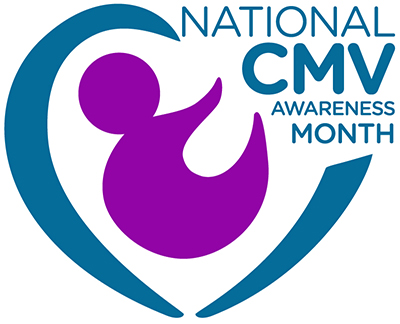by Annette Pinder
Cytomegalovirus (CMV) is a leading cause of birth defects worldwide. A common viral infection, CMV typically only causes mild symptoms in most people. According to the CDC, half of adults have had a CMV infection by the time they are 40 years old, and about 1 to 4 in 100 people get infected with CMV for the first-time during pregnancy. If a pregnant woman becomes infected with CMV, there is a 1 in 3 chance that she can pass it to her baby. If this occurs, the child may suffer disabling birth defects, such as microcephaly (very small head size), hearing loss, or even death.
According to the March of Dimes, while a woman can pass CMV to her baby at any time during pregnancy, the risk is higher in early pregnancy. CMV can also be passed on during labor or breastfeeding. About half of pregnant women have had CMV in the past. Once women have had CMV, it usually does not cause any harm to the baby. If a woman tests positive for CMV during pregnancy, the baby can be tested for the virus through amniocentesis or ultrasound.
People contract CMV through contact with someone who has the virus through body fluid, such as milk, semen, mucus, urine, and blood. Individuals who live or work with young children, or who work in a health care setting are at a higher risk for getting the virus. To help prevent getting the virus, people should wash their hands after being in contact with the body fluids of young children, such as when changing diapers, wiping noses, and picking up toys. It is also important to refrain from kissing young children on the mouth or cheek, and from sharing their food, dishes, and utensils.
Often, there are no symptoms that accompany CMV, but if there are they can include a sore throat, fever, swollen glands, and fatigue. Women who think they may have CMV can contact their health care provider to request a blood test. CMV patients who have weakened immune systems are at a greater risk for health problems associated with CMV, such as pneumonia and eye infections. There is currently no treatment or vaccine to prevent against CMV. However, the pharmaceutical company Moderna is currently conducting a clinical trial to evaluate the safety and efficacy of an investigational mRNA vaccine against CMV in women.
Women who are interested in participating in Moderna’s CMV trial must be between the ages of 16 and 40 years; in good health; have been in close contact with a child 5 years or younger for at least 8 hours a week if they are age 20 or older; and not be pregnant or planning on becoming pregnant within the next 9 months. Those who do participate are eligible for reimbursement for their time. The CMV clinical trial taking place closest to the Western New York region is located at Rochester Clinical Research, Inc. in Rochester, New York.
Learn more about CMV at https://cmvictory.com. Locally, Buffalo Prenatal Perinatal Network is a great resource for helping to improve maternal and infant health outcomes. Learn more at https://bppn.org or call 716-884-6711.












